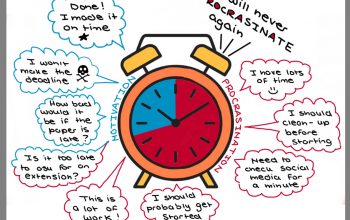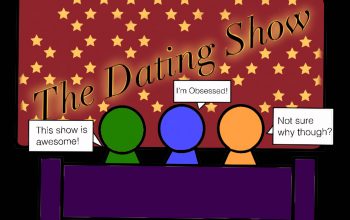Different perspectives, post-Quebec shooting
Soy Mei – COLUMNIST
Islamaphobia has been a frequent topic in this day and age. Much debate has arisen frequently on the topic of the religion of Islam because of related events, but has Islamophobia arisen because of it? In this article, I talk about my views on the current political atmosphere.
On Sunday January 28, 6 people were killed and 19 were wounded at the Centre Culturel Islamique de Québec mosque in Quebec City. All of whom were unsuspecting citizens simply devoting time to their faith. One suspect was a white, 27-year-old student at Laval University, Alexandre Bissonnette, who faces charges of 6 counts of first-degree murder and 5 counts of attempted murder.
What happened was a cruel and immoral attack. There is no excuse for taking one’s life. Violence is never justified, no matter who it is against. If the shooter’s goal was to raise awareness for his cause, then not only is he incredibly selfish, he has failed at doing that miserably. The moment you believe that violence can be justified against people that you have never met, you have effectively lost the war of ideas.
The motive has not been officially confirmed as of the time of printing, but it might as well have been, as, for many people, it already seemed clear to them that this was an act of hate toward Muslims. In the comment section of any major news story, many times I would see people urging the news outlets to label a story as a “terrorist attack,” or “hate crime.” However I believe that it is the media’s duty to publish fact first and foremost, not to appease readers, and I see no productivity in labeling an incident one way or another, be it as “terrorist attack,” or “shooting.” It still does not change the fact that however many people were hurt or killed. No matter what we call it, we are still stuck with the same devastating reality.
This incident has shown me that, no matter how strongly you may feel about an ideology, the moment you generalize the actions of a few to a whole group and demonize them, danger becomes imminent. That is why I think that showing solidarity with Muslim people show that not all Canadians think like the shooter, if indeed his intentions were against their religion as a whole. These actions can help demonstrate the fault behind stereotypical narratives and help us to transcend them. However, I do feel that this action of painting different groups with a broad brush can be observed critically from both the left and the right sides of the political spectrum. It’s time to stop this kind of fear-mongering rhetoric from both sides, as only when we come together as one will it be possible to co-exist.
And, given a large volume of recent reporting of crimes targeted towards Muslims, I believe that it is now more necessary than ever for us to be able to tolerate other opinions, and to engage in civil discussion. Unfortunately I feel like some people’s prejudice against Muslims is a testament of the polarization and alienation of the left and the right. I believe that restrictions on “speech,” or what some may deem as “hate speech” is the greatest barrier to the coming together of two sides. I believe that silencing people with legitimate concerns using buzzwords like “Islamophobia” or “racist” does not actually make the rhetoric go away. Doing so would actually devalue actual cases of Islamophobia, and it ensures an unproductive conversation. This doesn’t have to be a war using weapons, but rather a war of ideas, which can be fought using our brains and speech.
Also, I think it is essential to distinguish between constructive criticisms on Islam and unfound hate on a group of people based on an ideology. Those criticisms include women’s rights in Islam which have often been brought up by activists including Asra Nomani and Ayaan Hirsi Ali. A good debate would involve discussing and arguing on opposing political ideas, whether it ends in agreement or disagreement.
Too often, the media that we are subjected to are only stories that make the headlines. Or we only see situations through our own narrow lenses. These stories may be the flashiest, but they may not necessarily be the biggest story, which means that much of the audience may be left uninformed on some news stories, and the different parts of the same story.
The social circles that we are in also greatly shape our perception of reality. That is why I believe that it is important to engage in conversations on important topics to learn about alternative views on different issues and try to find commonplace before making judgement ourselves. And I think it is very important to keep in mind cultural and personal experiences that may lead to dissenting opinions.
I believe that more interactions with people with diverse opinions will help resolve misconceptions, not to mention that being involved in the community contributes to a healthier state of mind. Both of which could help avoid harmful actions such as the mosque shooting, so, I would advise that you engage your neighbors. Even if it doesn’t completely solve world issues, I have learned that you can always take something away from one another.
At the end of the day, though, I think there’s something most of us, if not all, can agree with. No one should ever be susceptible to violence. An attack will always be a gutless act no matter what, what we can do is to think critically about what lessons each of us can take away from situation like this.





